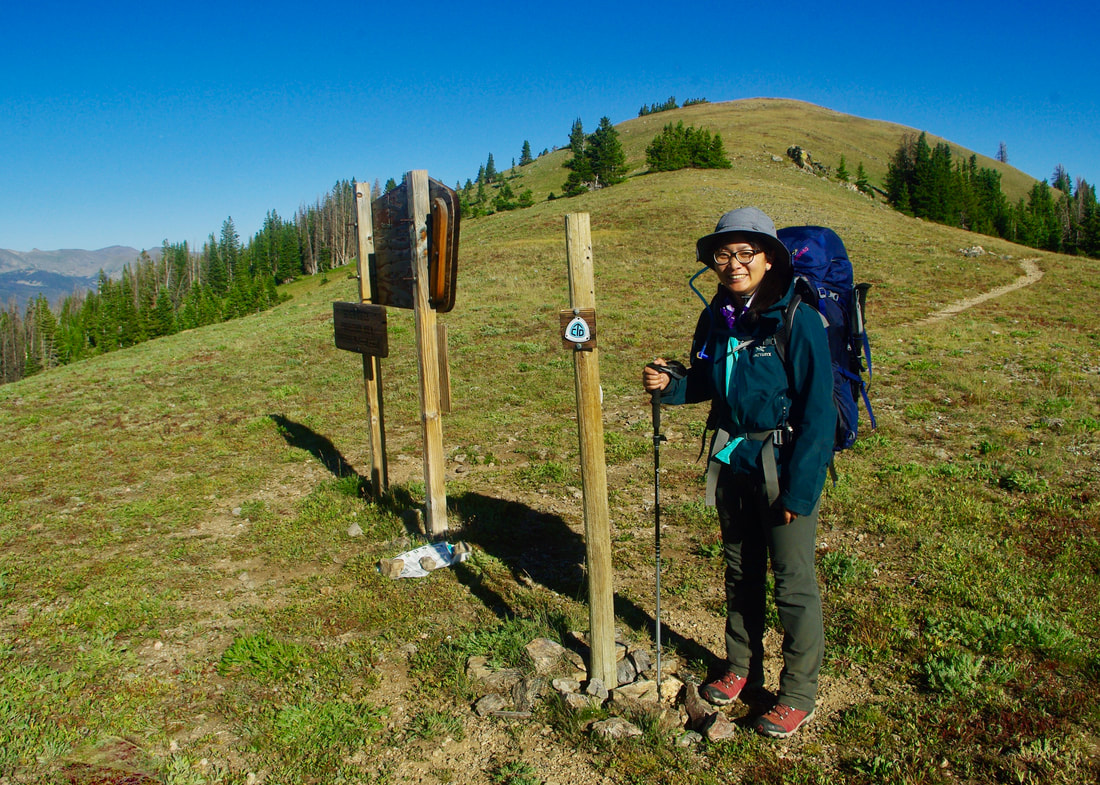To me, being an ecohydrologist means being a naturalist at heart. You wonder about how things work when you’re out and about, hiking in the woods, climbing a mountain, paddling a canoe. Ecohydrology has also been an academic refuge for me, where I can use the skills that I picked up from engineering to study the wonders of nature. “Water and ecosystems” seems as big a label as you would want, if you wandered into this field through odd paths. Later, ecohydrology also became a kind of camouflage. You can insinuate yourself into the company of people from all areas of expertise, because so many things in the world intersect with water.
What are your undergraduate and graduate degrees in?
I have a B.S. in Mechanical Engineering and a minor in Biology from Stanford University, and a Ph.D. in Civil and Environmental Engineering from Duke University.
How did you arrive at working in/thinking about ecohydrology?
As an undergrad, I spent a lot of time building robots and designing things like battery charging mats for electric cars. At the same time, I also spent quite a bit of time outdoors, backpacking in the Sierra Nevada, or roaming around tropical forests in Australia on a study abroad program. These paths didn’t seem like they could converge until I found “ecohydrology” in grad school – where I could apply the first principles in thermodynamics and fluid mechanics to studying not cars or HVAC systems, but ecosystems.
What do you see as an important emerging area of ecohydrology?
Since moving to Minnesota, I’ve expanded my ecohydrology lens in two ways: to appreciate the importance of cold climate hydrology (something that I never had to think much about in seasonally dry ecosystems, which was the topic of my Ph.D. and postdoc), and to study ecohydrology in urban settings (which intersects with people’s lived experiences). I’ll elaborate on the first.
Snow is a huge part of life and water resources here. It also happens that a lot of these colder, perennially inundated watersheds (that contain peatlands) are transitioning from being a carbon sink to a potential carbon source, so snow hydrology both impacts and is impacted by climate change. Snow and frost complicate the timing of when water is available for plant water uptake. They also mediate how the water table regulates greenhouse gas emissions from these watersheds. It’s a complicated and timely problem.
Do you have a favorite ecohydrology paper? Describe/explain.
My wonderful Ph.D. adviser, Amilcare Porporato, sent me a paper by Gaby Katul, himself, and Ram Oren titled “Stochastic Dynamics of Plant-Water Interactions” (2007, Annual Reviews of Ecology, Evolution, and Systematics, vol. 38, 767-791) as an introduction to ecohydrology and his particular mode of inquiry. This was me straight out of college, so I didn’t appreciate the depth of the paper at the time, but I’ve since returned to it time and time again throughout my Ph.D. and even now.
This paper highlights the different timescales over which plant-environmental interactions can manifest, and the fallacy of averages when it comes to extrapolating plant responses across temporal and spatial scales. These ideas were, and still are, important, when long-term monitoring data are becoming increasingly popular and available, for thinking about how we use these data and what they mean. Even now, when I think about “plant water use strategies” or “optimal” stomatal conductance, I revisit these ideas – to place plant responses in the environmental contexts in which they occur.
What do you do for fun (apart from ecohydrology)?
To decompress from work, I read, cook, and watch a bunch of TV shows – these also help me stay connected to my extended family in China and Japan. The things that really fire me up are when I get to spend time outside. Since grad school, as a bargain with myself, I make it a goal every year to get unplugged in the wilderness somewhere for a week. The picture above is from when I hydro-geeked out over the Continental Divide in 2019.

 RSS Feed
RSS Feed